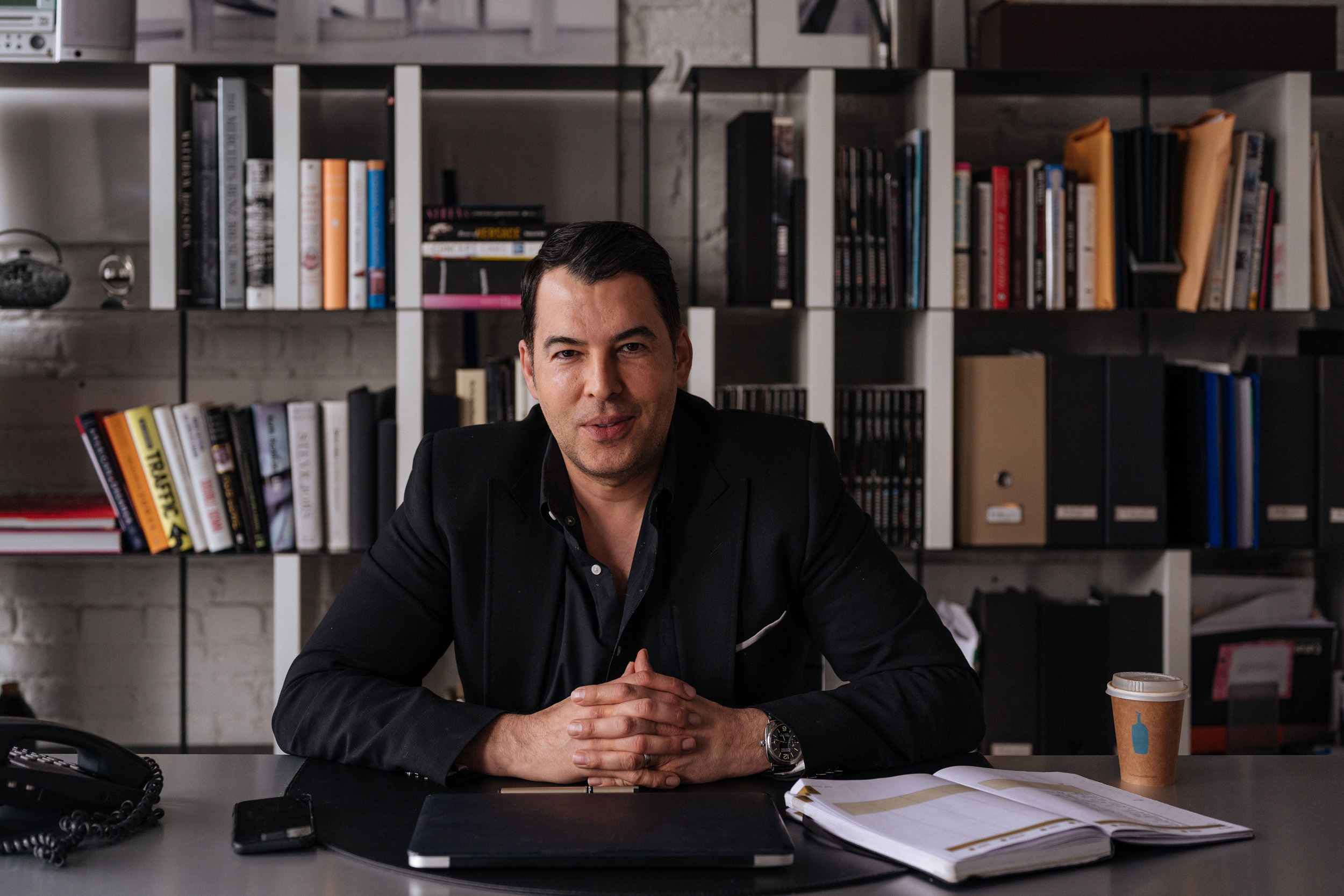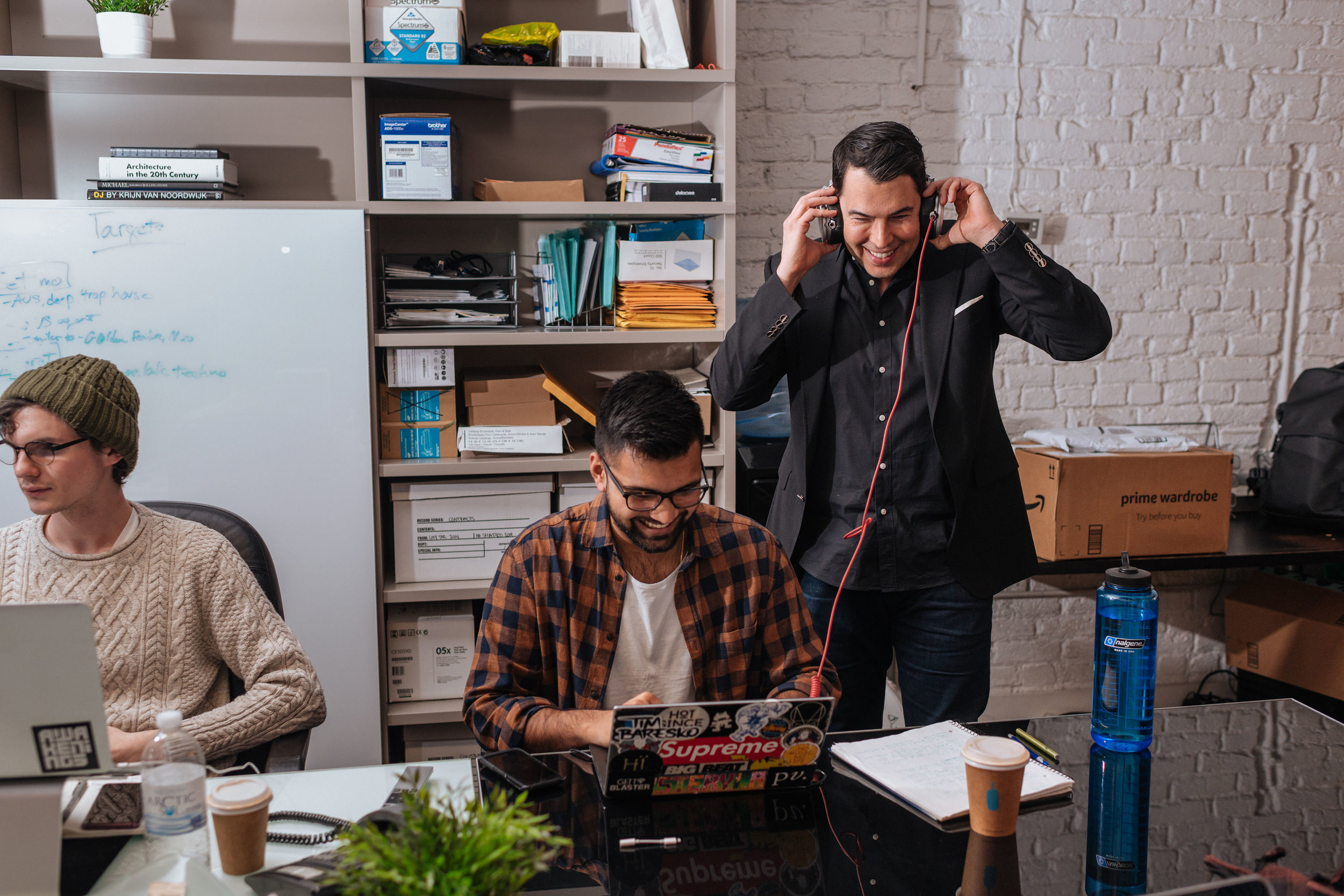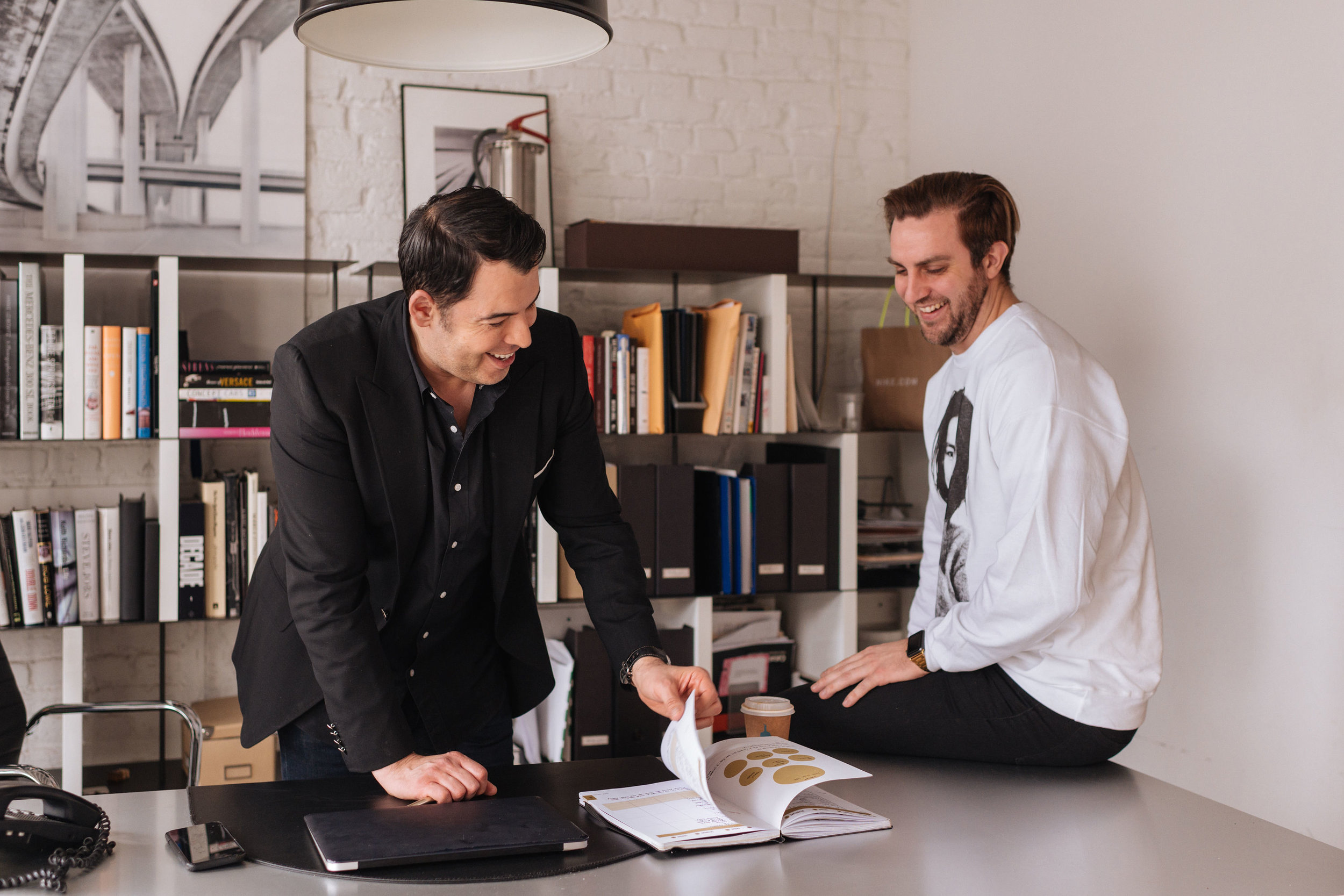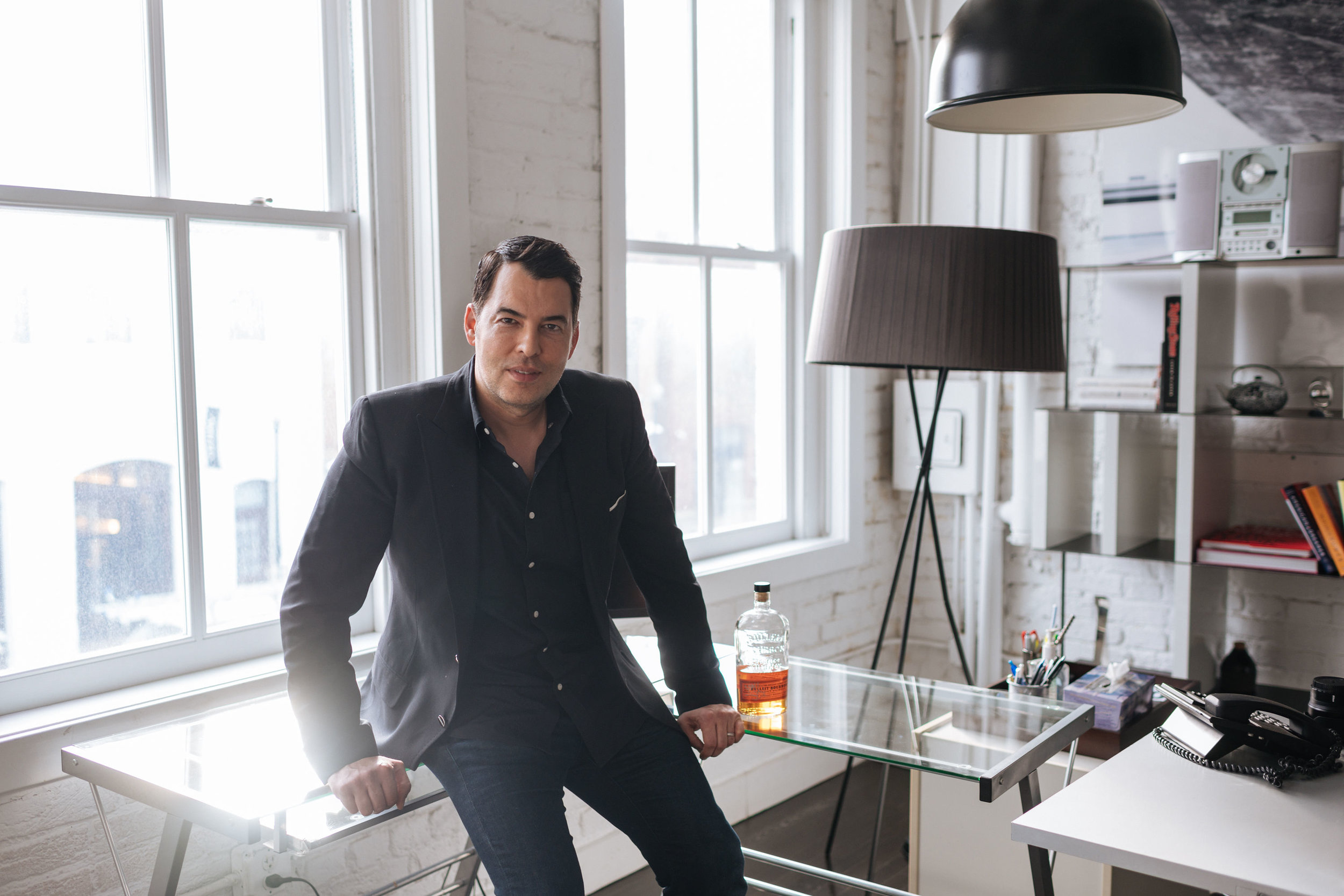‘I Couldn’t Believe When We Won a Grammy’
Inside Donatella Versace’s Lake Como villa, Arash Shirazi was mingling with Jennifer Lopez, every supermodel imaginable, and a handful of actors who’d frequented the pages of Vanity Fair, wondering how the hell he’d even gotten there.
Just five years prior, the Rockville native was fresh out of college and working in CNN’s video news department. He soon realized television wasn’t his calling, and spent three years at Leading Authorities Speakers Bureau. Then an unusual opportunity came his way.
Arash’s brother, Ali, was one-half of Deep Dish—a DC-based electronic music duo whose star was quickly on the rise. The DJs and producers needed representation, and asked Arash.
‘I didn’t know much about the business, but they offered a compelling idea of being my own boss, and I dove in. It was a family thing.’
Arash left Leading Authorities and founded The Bullitt Agency, but not before asking the president to hold his job in case things didn’t work out. He obliged, and Arash set up shop near the corner of M and Wisconsin, where Deep Dish had a third-floor studio. Record store YoshiToshi shared the block, along with a now-defunct record label—cementing that corner of Georgetown as a music mecca.
‘This was a creative little hub in the city, where people would come to buy music, meet DJs, and network at the label.’
Although Arash was new to the music industry, he drew on his business degree to establish standard operating procedures for the duo—creating database and structural systems, getting accounting and invoicing practices in place, and building out the team.
‘I reverse engineered where Deep Dish wanted to go. I’m good at finding talented people and putting them together. Then things started getting busier and busier, and they wanted me to handle their world-wide bookings, which scared me. There’s more pressure because it’s family. People assumed I only had that job because of my brother and I felt like I had to prove them wrong.’
No task was beneath him. Still in the days of paper ticketing, Arash frequently found himself running to an embassy to pick up a last-minute travel visa before swinging by the travel agency to pick up plane tickets, and speeding to Dulles to deliver them to the musicians before they boarded.
The Bullitt Agency grew with Deep Dish, who was now leading on the UK charts. As their shared success continued, Arash started getting noticed, hired two staff members, and began acquiring more acts. Much of those early days were trial by fire.
‘I had a talent buyer who called me and said, ‘I can’t believe you’re putting these DJs in this venue with my competitor; I’m the big shot here in Toronto and I’m the only one who books the mega DJs.’ These were the David Guettas of the time. I remarked that I didn’t know who he was referencing, I don’t know who you are, and I don’t appreciate you calling me and telling me how to do my job—so I’m going to go ahead and move forward with this competitor.
‘The perception was I was this big tough guy who was a master music tactician, but the reality was I didn’t know what I was doing. The music industry is like this old boys club and a lot of talent buyers only want you to work with them, but they don’t pay for exclusivity.’
Out of his inexperience, Arash booked the DJs. The competing talent buyer realized Arash was a novice with potential, and offered him some guidance. Today, they’re good friends.
By 25, Arash was traveling first-class around the world with his acts. He saw the opportunity as a passport to see places he never thought he’d experience at such a young age.
‘I went to Egypt, Dubai, South Africa, Paris seven or eight times in a year. We were at Milan Fashion Week, and Deep Dish was opening for Madonna. It all happened so fast. The strange thing is I’d be at the dinner table with Jennifer Lopez, and then Sunday I would fly back home and just walk down M Street and have my lunch at Peacock Cafe. It was exciting.’
Exciting, and a downfall for many of Arash’s peers, who were too easily seduced by the lifestyle—developing addictions, and acting unprofessionally. Arash says he was too Type A for that—always worried about the next show, and proving himself at every turn.
‘I was accountable to the act, to the talent buyers, to my employees. Looking back I was probably too rigid, and didn’t have as much fun as I could have had. But I’m also glad I did it that way because some of those other people aren’t in the business anymore. It wasn’t my MO.’
It was Arash’s love for the business—particularly during its prime—that motivated him most. Pre-iTunes and Spotify, the music industry was still thriving—making money, and spending it. Deep Dish was also at the top of its game, winning the 2002 Grammy for Best Remixed Recording of Dido’s Thank You. It was the ultimate out-of-body experience for ‘some guys from suburban Maryland.’
Around 2010, Arash began experiencing a shift in the industry. Suddenly DJs were getting paid as much as $200,000 per show, and the understanding and mutual respect that once existed between agents and agencies was corrupted by mega agencies flooding the scene during the EDM boom.
‘It was like a gold rush; everyone wanted to be in this business. I call it the commodification of dance music. When it happened it became less fun. I still enjoy it, but there’s a different pressure now. There’s a lot less loyalty, less of a community of creatives with a shared love of music. Now, there’s just so much more at stake.’
Arash says the industry’s business model has also changed. Artists are no longer making money selling records, relying instead on tirelessly touring.
‘Every act, whether you’re Beyonce, Paul McCartney, Drake, or a small local DJ, is touring. The pressure is there.’
The Bullitt Agency has adapted to the industry shift—priding itself on agility and resilience to remain relevant.
‘I’ve had so many situations that have knocked me down and I had to be resilient and get back up. It’s not easy running your own business, and it’s especially challenging in the music industry, which thrives on predatory business practices. A lot of smaller agency players either go out of business, are acquired, or seek jobs at big agencies. The ability to be agile and not let headwinds slow you down is key.’
Personally, Arash’s life has taken equally sharp turns. Now a husband to a successful fashion blogger and father to 15-month-old twins, he splits his time between Georgetown and Los Angeles—home to one of the agency’s four other offices—and says the biggest struggles is not missing out on the little moments with his children that he’ll never get back.
Now when he’s able to catch a show, Arash says he enjoys it all the more. There’s something about discovering new talent and bridging the gap that still appeals to him nearly two decades later.
‘When I was an intern at Discovery Channel, this VP said, ‘You have an innate talent with people, make sure you use that.’ I’m interested in learning about new people. I can see their potential and connect them with things and people who can help. I like seeing what sparks.’






